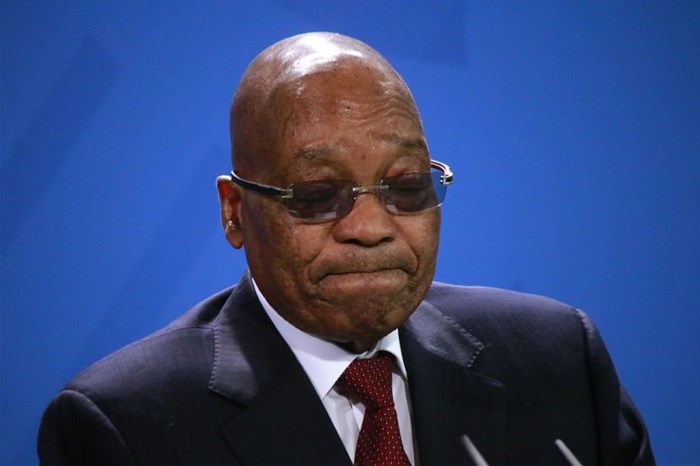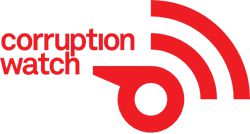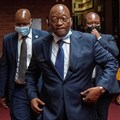Bosasa: Zuma failed to uphold constitutional duty

In the third instalment of its report, the commission found Zuma to have played a facilitator role in advancing the interests of Bosasa while it held irregular contracts valued at over R1bn with the Department of Correctional Services (DCS), in return for several favours, including cash payments of R300,000 per month to the JG Zuma Foundation for some time, as well as lavish birthday parties paid for by the company. Commission chairperson and Chief Justice designate Raymond Zondo acknowledged that for the most part, the evidence that implicated Zuma was hearsay, having been presented by Bosasa’s former COO Angelo Agrizzi, but due to his refusal to appear before the commission, was never disputed, and is therefore the only version available.
Admissable hearsay
“To the extent that the evidence includes hearsay, it is admissible in the commission’s proceedings … Mr Zuma had every opportunity to come forward and dispute the evidence. He elected not to do so,” Zondo writes. He adds that there was a high probability that Zuma was in a position to influence law enforcement decision-makers to ignore allegations of corruption against Bosasa, which was investigated in 2009 by the SIU. The favours returned by the company could also not be ignored in light of the evidence brought forward, as they point to there being a mutually beneficial relationship.
Agrizzi testified before the commission that he was told by Bosasa’s former CEO, the late Gavin Watson, that the company set aside R300,000 in cash to give to the foundation every month, through the chairperson at the time, Dudu Myeni, who was also Zuma’s close associate and chairperson of South African Airways. Whether the foundation was used as a ruse and the money actually went to Zuma, the commission was unable to establish, Zondo notes.
“The manifestly generous expenditure by Bosasa on Mr Zuma’s birthday parties was confirmed in oral evidence by Ms Myeni and also evidenced by her thank you letter and the photographs attached to Mr Agrizzi’s affidavit, including the photographs of the birthday cake with the Bosasa logo.
“Mr Agrizzi testified that Mr Watson openly used to tell him and others that he paid Ms Myeni R300,000 a month for the benefit of the Jacob G Zuma Foundation. Mr Agrizzi said that he witnessed these payments being delivered to Ms Myeni on three occasions – twice delivered by Mr Watson and once delivered by [former Bosasa executive] Mr [Trevor] Mathenjwa.”
Zuma's role
Although Zondo concedes that Zuma may not have assisted in securing the contracts with the DCS, he notes that it may well be that he played a significant role later, when the alarm had been raised and the Hawks sought to investigate Bosasa following the damning SIU report. The first arrests in relation to the investigation were only made in March 2019, following Agrizzi’s appearance before Zondo, a decade after the initial investigation had been carried out. This raises the suspicion that there was great influence in stalling the probe, according to Zondo.
“The investigation and prosecution were, indeed, successfully brought to a halt. Again, Mr Zuma having failed to appear before the commission and provide a full account, there are reasonable grounds to suspect that he was instrumental in preventing the investigation and prosecution from proceeding.”
“The probability of Mr Zuma having played a role in securing the disclosure of confidential information in the hands of the prosecuting authorities, is enhanced by the fact that Mr Zuma’s close associate Ms Myeni was also involved in providing confidential information emanating from the prosecuting authorities to Bosasa.”
The report further noted evidence relating to a 2016 meeting at Zuma’s Nkandla home with representatives of oil company Falcon Oil and Gas Group – for which Agrizzi provided documentary evidence in the form of an e-mail from Myeni confirming the meeting. It was viewed by Agrizzi as a request for an intervention from Zuma by the company, for then minerals and energy minister Ngoako Ramatlhodi to “make certain amendments to what were considered to be restrictive regulations applicable to the oil and gas industry.” The lifting of the regulations would help facilitate fracking in the Karoo. Zondo notes that Ramatlhodi’s legal advisors were indeed instructed to meet with Falcon, but that it is not clear if their request was granted. Myeni acknowledged in her testimony that she was present at the meeting in Nkandla, but denied that it was meant to garner Zuma’s influence. Also present, according to Agrizzi, was Watson, from whom he learned of the meeting.
Breach of obligations
Zondo notes that Zuma’s position as president and head of the national executive should have been taken more seriously and protected from conflicts of interest.
...there are reasonable grounds to suspect that Mr Zuma’s conduct was in breach of his obligations as president under the Constitution, in breach of his obligations under the Executive Ethics Code and in breach of legislation. Having regard to the nature of the relationship between Mr Zuma and Bosasa, as revealed by the evidence, Mr Zuma placed himself in a conflict-of-interest situation.“Section 24(1) of Precca would likely deem there to be sufficient evidence to establish that Mr Zuma accepted the gratification from Bosasa and in doing so breached his constitutional and legislative duties as well as ethical obligations in order to act in one or more of the ‘manners’ in paragraphs (aa) to (dd) of the Precca, being the different statutorily recognised forms of quid pro quo.”
This article was originally published on Corruption Watch.
Source: Corruption Watch

Corruption Watch (CW) is a non-profit organisation launched in January 2012, and operates as an independent civil society organisation with no political or business alignment. CW is an accredited Transparency International chapter that fights against the abuse of public funds, relying on the public to report corruption. These reports are an important source of information to fight corruption and hold leaders accountable for their actions.
Go to: www.corruptionwatch.org.za
































